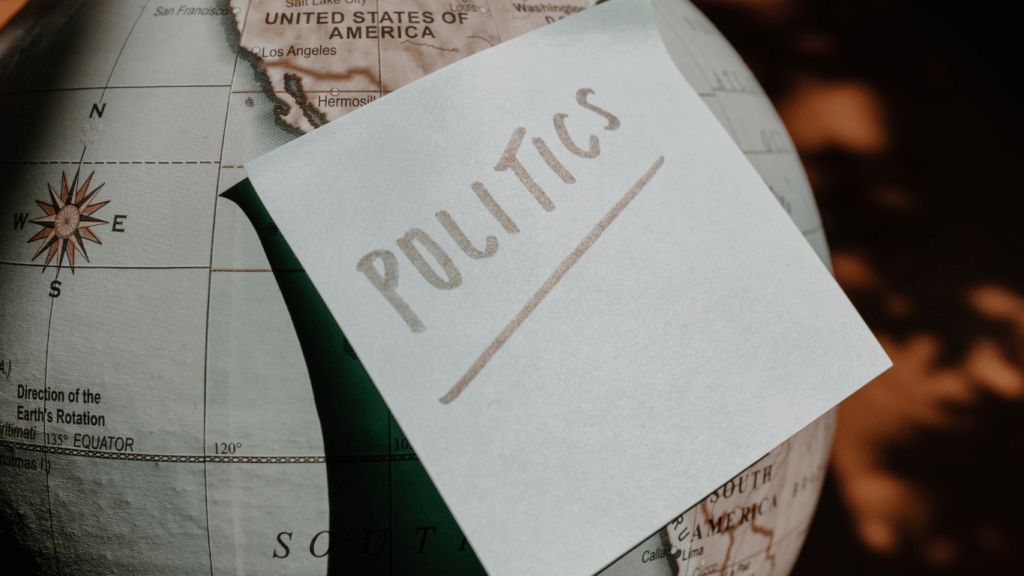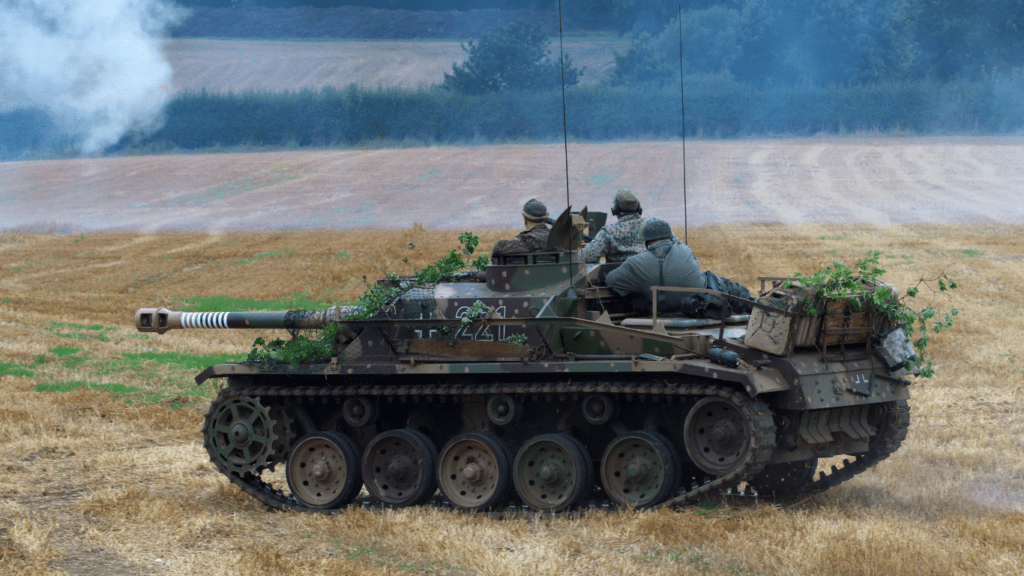Overview Of World Politics
World politics encompasses various complex and interconnected events. Governments, international organizations, and non-state actors play critical roles. Their actions and decisions influence global stability and prosperity.
Key Players
- United Nations (UN): Established in 1945, the UN aims for international peace and cooperation.
- North Atlantic Treaty Organization (NATO): A military alliance of 30 countries, focusing on collective defense.
- European Union (EU): A political and economic union of 27 European countries, promoting regional integration.
Major Issues
- Conflicts and Wars: Ongoing conflicts in Syria and Yemen cause humanitarian crises.
- Economic Shifts: Rapid growth in China reshapes global economic dynamics.
- Environmental Policies: Climate change agreements, like the Paris Agreement, require international cooperation.
Geopolitical Tensions
- US-China Relations: Trade disputes and military rivalry define this significant bilateral relationship.
- Russia-Europe Dynamics: Tensions persist over NATO expansion and energy dependencies.
- Middle East Instability: Power struggles and ideological conflicts impact regional stability.
International Treaties and Agreements
- Paris Agreement (2015): An international treaty to combat climate change.
- Iran Nuclear Deal (2015): Limits Iran’s nuclear capabilities in exchange for lifting economic sanctions.
- Brexit Agreement (2020): Defines the UK’s exit terms from the EU.
- United States: Dominates through technology, finance, and military strength.
- China: Rising influence due to rapid economic development and Belt and Road Initiative.
- European Union: Significant global trade bloc with regulatory power.
World politics remain dynamic and multifaceted. Understanding these key elements is crucial for grasping current events and their future implications.
Key Historical Events

Major historical events have shaped the world we live in today. These events provide crucial context for understanding current global dynamics.
The Cold War And Its Aftermath
The Cold War, which lasted from 1947 to 1991, defined much of the 20th century. This prolonged state of tension between the United States and the Soviet Union influenced global alliances and conflicts. The rivalry led to major events, including:
- The Berlin Airlift (1948-1949): Western allies supplied West Berlin during a Soviet blockade.
- Cuban Missile Crisis (1962): A 13-day confrontation between the US and the Soviet Union over missiles in Cuba.
- Fall of the Berlin Wall (1989): Marked the symbolic end of the Cold War and the division of Germany.
Following the Cold War’s end, the world saw significant geopolitical shifts. The dissolution of the Soviet Union in 1991 resulted in new independent states and a unipolar world order dominated by the United States. NATO expanded, incorporating former Eastern Bloc countries, which changed the security landscape of Europe.
The Rise Of Global Terrorism
Global terrorism became a prominent issue in the late 20th and early 21st centuries. Events like:
- September 11 Attacks (2001): Al-Qaeda’s coordinated terrorist attacks on the US, leading to the War on Terror.
- Madrid Train Bombings (2004): Terrorist attacks by an Islamist group, impacting Spain’s politics and security.
- Paris Attacks (2015): Coordinated attacks in Paris, heightening global anti-terrorism efforts.
These events prompted international alliances and military interventions in regions like Afghanistan and Iraq. Increased global surveillance, stricter immigration policies, and counterterrorism measures were implemented to combat these threats.
Major Political Theories And Their Influence
Understanding major political theories is key to analyzing world politics. Here’s a look at how realism, liberalism, constructivism, and Marxism shape global dynamics.
Realism And Liberalism
Realism focuses on the notion that states act primarily in their self-interest, emphasizing power and security. Realists believe the international system is anarchic, with no supreme authority. This leads to a constant power struggle where alliances are temporary and strategic. Examples include the US-China rivalry and NATO’s role in Europe.
Liberalism, on the other hand, posits that cooperation among states can lead to mutually beneficial outcomes. Liberals argue that international institutions and norms can promote peace and stability. The European Union exemplifies liberal principles through regional integration, economic cooperation, and collective decision-making.
Constructivism And Marxism
Constructivism highlights the importance of ideas, beliefs, and identities in world politics. Constructivists assert that social constructs shape international relations, rather than just material forces. They argue that state behaviors evolve based on shared values and norms. The shift in international attitudes toward climate change, influenced by the Paris Agreement, is a case in point.
Marxism views global politics through the lens of economic class struggle and materialism. Marxists believe that the capitalist system leads to inequality and exploitation, influencing state policies and international relations. The influence of Marxist theory can be seen in the policies of socialist states and the global discourse on income inequality. Examples include discussions around wealth distribution and labor rights.
Understanding these theories provides a framework to analyze and interpret major events in world politics. Each theory offers distinct insights into how and why states act, helping to clarify the complex web of international relations.
Current Global Political Landscape
World politics change rapidly, influenced by various superpowers, regional conflicts, and dynamic alliances. Key developments in these areas affect global stability and economic progress. Let’s explore these areas in more detail.
The Role Of Superpowers
Superpowers like the United States, China, and Russia dominate global politics. They shape international policies, trade relations, and security protocols. The U.S. focuses on maintaining its influence through military alliances like NATO and economic agreements such as USMCA. China expands its reach with initiatives like the Belt and Road, aiming to enhance trade routes across Asia and Africa. Russia, leveraging its energy exports, exerts influence over Europe, particularly in areas like natural gas supply.
Regional Conflicts And Alliances
Conflicts in the Middle East, Asia, and Europe significantly impact global stability. In the Middle East, the Syrian and Yemeni wars cause humanitarian crises and shift power balances. Asia sees tensions on the Korean Peninsula with North Korea’s nuclear ambitions and in the South China Sea, where territorial disputes involve several Asean countries and China. Europe grapples with conflicts in Ukraine and NATO’s eastward expansion, which provoke responses from Russia. These regional alliances, driven by security and economic needs, shape global political dynamics, creating alliances like the Quad, involving the United States, India, Japan, and Australia, to counterbalance China’s growing influence in the Indo-Pacific region.
Impact Of Technology And Media
Technology and media have profoundly transformed world politics. Their influence can be seen in various areas, from social media shaping political campaigns to cybersecurity becoming a critical aspect of international relations.
Social Media’s Influence On Politics
Social media plays a pivotal role in modern politics. Platforms like Twitter, Facebook, and Instagram have become primary tools for political communication. Politicians use them for campaign outreach and voter engagement. For example, former President Obama leveraged social media in his 2008 campaign, reaching millions of young voters.
Social media facilitates real-time information dissemination and opinion formation. News about global events spreads rapidly, affecting public opinion and sometimes leading to swift policy changes. In 2011, the Arab Spring revolutions were significantly driven by social media, where activists organized protests and shared updates.
However, social media also presents challenges, such as misinformation and foreign interference. The 2016 US presidential election highlighted alleged Russian interference through social media, impacting the political discourse and raising concerns about election security.
Cybersecurity And International Relations
Cybersecurity has become a critical component of international relations. State actors engage in cyber espionage and cyber-attacks to gain strategic advantages. High-profile incidents, like the 2017 WannaCry ransomware attack, underscore the vulnerabilities nations face.
Countries invest in cybersecurity infrastructure to protect sensitive information and critical systems. The US established the Cybersecurity and Infrastructure Security Agency (CISA) to enhance national cyber defenses. Other nations, including China and Russia, have similar dedicated agencies.
Cyber-attacks can escalate geopolitical tensions. In 2020, allegations of Russian cyber-attacks against US government agencies strained diplomatic relations between the two countries. Cybersecurity remains a focal point in international negotiations and treaties, such as the UN Group of Governmental Experts on Developments in the Field of Information and Telecommunications in the Context of International Security (UNGGE).


 Paulah Simmonserly, the visionary behind News Flip Network, has built a platform that delivers timely and comprehensive news across multiple fields. With a deep passion for journalism and a commitment to keeping the public informed, Simmonserly ensures the site covers everything from global affairs to business trends, health insights, and sports updates. Her leadership emphasizes accuracy and relevance, making News Flip Network a trusted resource for readers seeking up-to-date information on the events shaping the world.
Paulah Simmonserly, the visionary behind News Flip Network, has built a platform that delivers timely and comprehensive news across multiple fields. With a deep passion for journalism and a commitment to keeping the public informed, Simmonserly ensures the site covers everything from global affairs to business trends, health insights, and sports updates. Her leadership emphasizes accuracy and relevance, making News Flip Network a trusted resource for readers seeking up-to-date information on the events shaping the world.